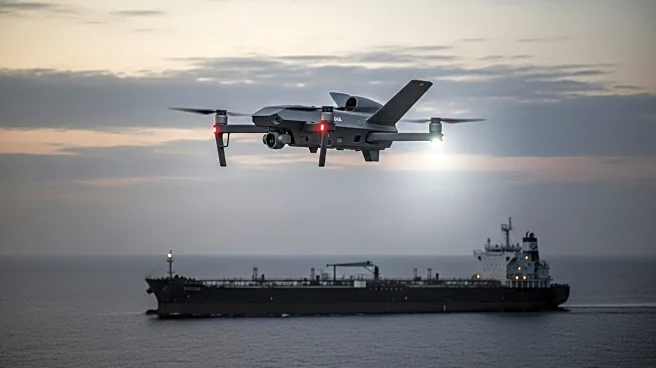What's Happening?
French military personnel have detained two crew members of a Russia-linked oil tanker suspected of launching drones that disrupted airports in Denmark. The tanker, named Boracay, is part of Russia's 'shadow fleet' and was intercepted by a French naval vessel while carrying crude oil from Russia to India. The crew members were taken into custody for failing to justify the vessel's nationality and refusing to cooperate. The investigation follows drone sightings in Danish airspace, which led to airport closures. The French prosecutor has launched an investigation, and the tanker remains under detention in Saint-Nazaire, France.
Why It's Important?
The detention of the tanker crew highlights ongoing tensions between European countries and Russia, particularly concerning security and economic sanctions. The incident underscores the challenges of enforcing sanctions and monitoring maritime activities linked to Russia's 'shadow fleet.' The drone sightings have raised concerns about potential security threats and the need for enhanced surveillance and defense measures. The situation may impact diplomatic relations and prompt discussions on strengthening security protocols and cooperation among European nations.
What's Next?
The investigation into the tanker and its crew is expected to continue, with potential legal proceedings against those involved. European leaders may discuss strategies to counter drone threats and improve maritime security during upcoming summits. The incident could lead to increased scrutiny of vessels linked to Russia and efforts to enforce sanctions more effectively. Stakeholders, including government officials and security experts, may explore technological solutions to detect and prevent unauthorized drone activities.
Beyond the Headlines
The broader implications of the incident may include discussions on the ethical and legal dimensions of maritime security and the use of drones. The situation highlights the complexities of international trade and the enforcement of sanctions in a globalized economy. Long-term, countries may need to address the balance between economic interests and security concerns, particularly in regions affected by geopolitical tensions.










